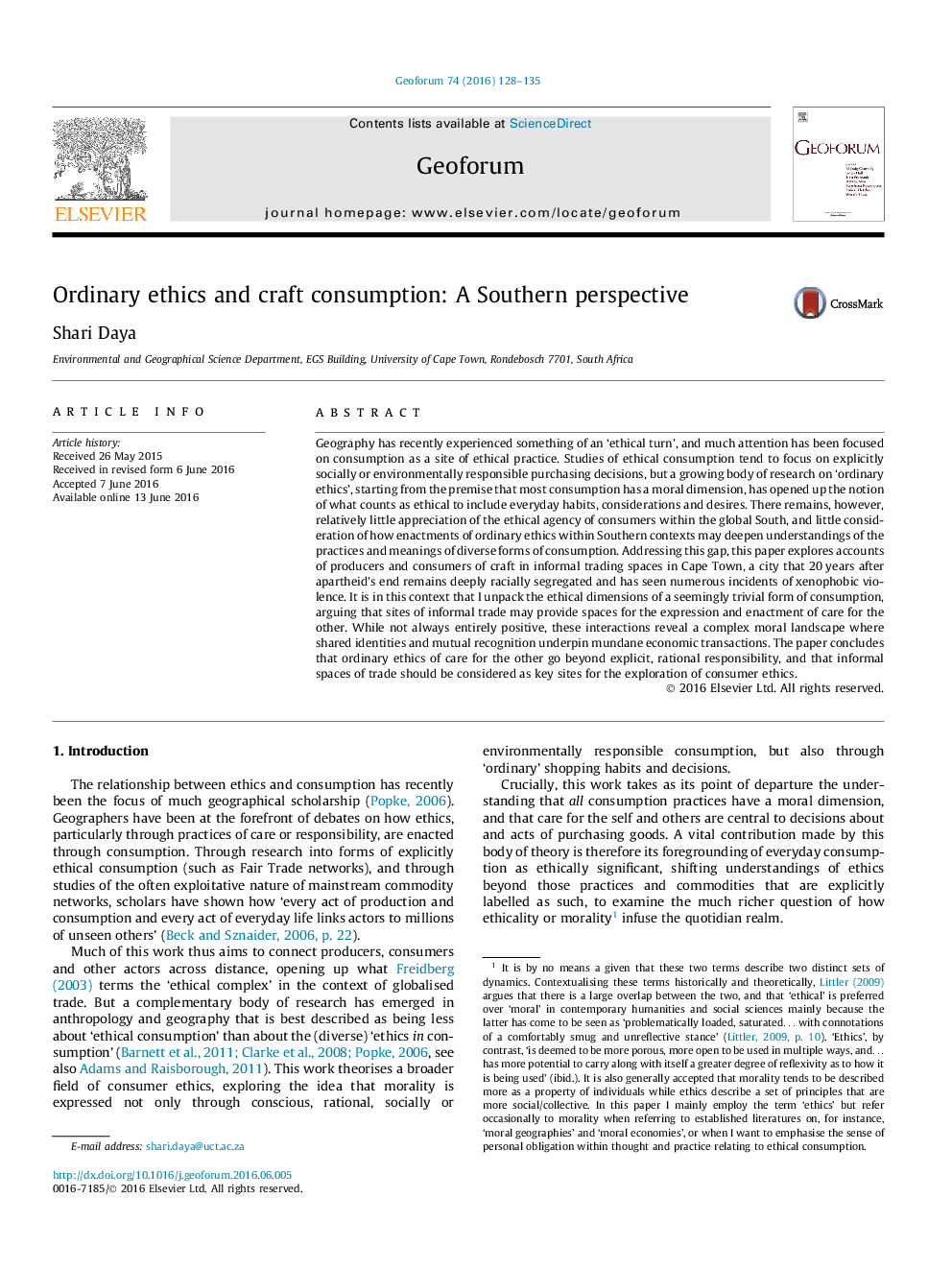| Article ID | Journal | Published Year | Pages | File Type |
|---|---|---|---|---|
| 5073449 | Geoforum | 2016 | 8 Pages |
Geography has recently experienced something of an 'ethical turn', and much attention has been focused on consumption as a site of ethical practice. Studies of ethical consumption tend to focus on explicitly socially or environmentally responsible purchasing decisions, but a growing body of research on 'ordinary ethics', starting from the premise that most consumption has a moral dimension, has opened up the notion of what counts as ethical to include everyday habits, considerations and desires. There remains, however, relatively little appreciation of the ethical agency of consumers within the global South, and little consideration of how enactments of ordinary ethics within Southern contexts may deepen understandings of the practices and meanings of diverse forms of consumption. Addressing this gap, this paper explores accounts of producers and consumers of craft in informal trading spaces in Cape Town, a city that 20Â years after apartheid's end remains deeply racially segregated and has seen numerous incidents of xenophobic violence. It is in this context that I unpack the ethical dimensions of a seemingly trivial form of consumption, arguing that sites of informal trade may provide spaces for the expression and enactment of care for the other. While not always entirely positive, these interactions reveal a complex moral landscape where shared identities and mutual recognition underpin mundane economic transactions. The paper concludes that ordinary ethics of care for the other go beyond explicit, rational responsibility, and that informal spaces of trade should be considered as key sites for the exploration of consumer ethics.
